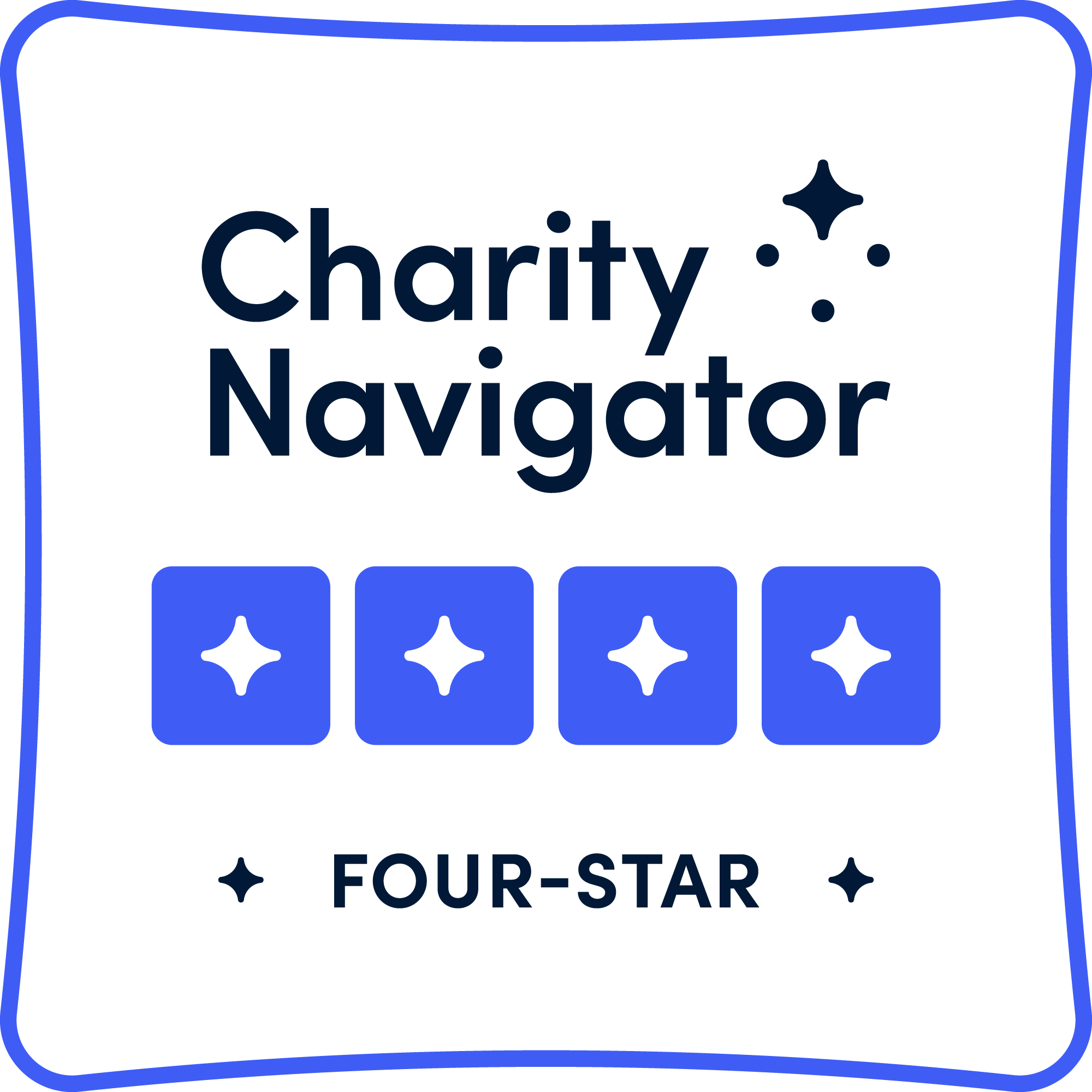Ted and Hope Williams: Embracing Change, Starting a Family
Veterans who served in Operation Enduring Freedom and Operation Iraqi Freedom experience rates of infertility of 16-18%, compared to the national average of 12-14%. Infertility refers to the inability to conceive with a partner after attempting for a period exceeding 12 months. Service-connected injuries are one of the defining factors in active-duty service members and veterans. Navigating veterans’ infertility treatment can be emotionally, physically, and financially taxing.
The Bob Woodruff Foundation’s VIVA program provides guidance and financial support to veterans who want to start or expand their families but may not qualify for Veterans Affairs funding.
Air Force Senior Airman Ted Williams was carrying out military police patrol duties with his security team in Montana on November 29, 2012. While seated in the back of their Humvee, an unexpected maneuver made to avoid a group of deer caused the vehicle to flip multiple times. Ted was forcefully thrown out of the Humvee and discovered 60 feet away from the crash site.
Unconscious, Ted was rushed to the hospital, where he remained in a coma for weeks. When he awoke, doctors explained that he had broken the C4-C6 vertebrae in his neck, resulting in quadriplegia, meaning he had no function from the chest down. This injury would change his life in many ways, including whether he could have children. Upset and scared about the future, Ted was determined to persevere.
We recently spoke to Ted about his family’s experience of starting a family with the help of VIVA and veterans’ infertility treatment.
Can We Start a Family?
William’s injury required multiple surgeries and many hours of physical therapy. He and his wife, Hope, moved to San Antonio, Texas, for his inpatient rehabilitation. Starting a family wasn’t on their radar yet.
“I wasn’t even thinking about having children,” remembers Ted. “I didn’t really know if we would or wouldn’t be able to have children.”
While in San Antonio, Ted’s spinal cord doctor shared that her husband was a person with quadriplegia, and they had just had twins via IVF. This discussion opened the couple’s eyes to a possibility they didn’t know existed.
“She took it upon herself to really help us, and that is how we actually got connected with [VIVA],” says Ted.
Even with this new option, the couple wasn’t sure if they wanted to have a child because of Ted’s injury.
“We were really contemplating: Do we want to bring a child into this life with [my] disability? You know, having a challenging life — I don’t want to say it’s not a good life — but it is challenging,” Ted explains.
Crisis of Conscience in Veterans’ Infertility Treatment
The decision to pursue IVF was challenging for the Williams family. Some of the people in their life did not agree with the procedure, feeling that it went against their beliefs.
Ted and Hope knew they desired to be parents, and their thoughts focused on their embryos, hoping for a path that aligned with their values.
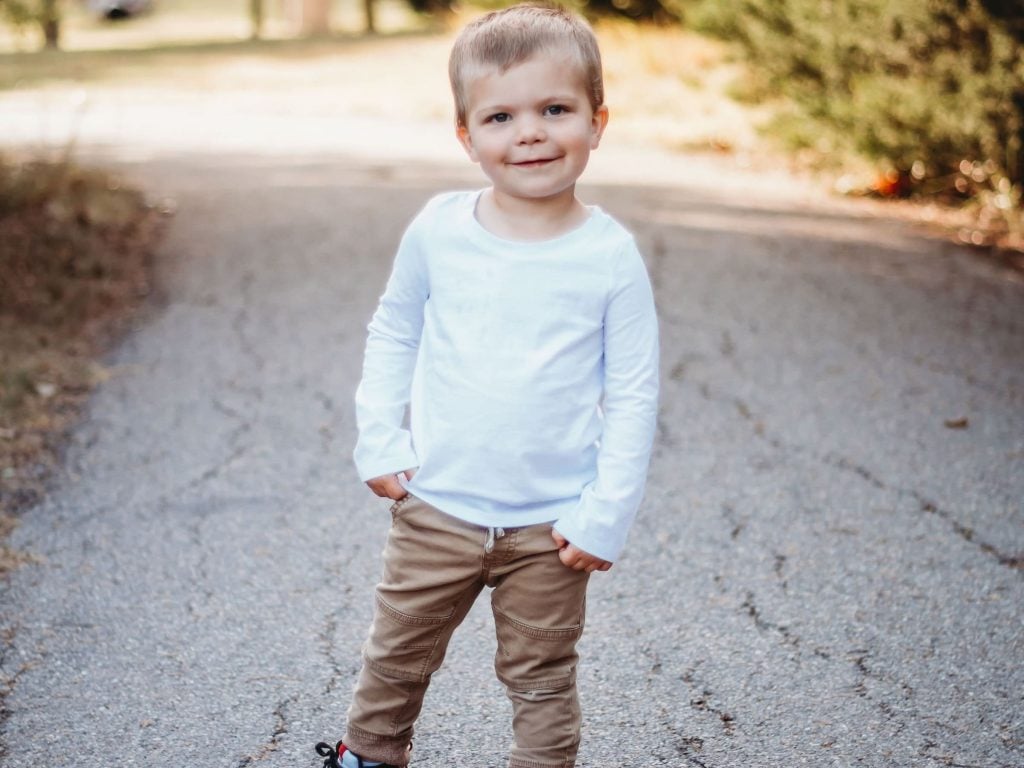
Even before they started the process, Ted and Hope grappled with what to do with any unused embryos they might have once their family was complete.
The Williams wanted to ensure their decision held the utmost respect for the potential lives they’d create. Ted and Hope were torn between wanting to expand their family and the ethical concerns surrounding the fate of the embryos.
Despite their doubts and some external judgment, they found solace in other community members who empathized with their situation and affirmed their choice to begin IVF.
“A lot of people were like, ‘If we were in your situation, we would do the same’,” says Ted. “You would always ask, ‘What if?'”
Veterans Infertility Treatment Process
The emotional rollercoaster continued throughout the IVF process. Hope experienced the grueling effects of the hormones and the waiting period before embryo transfer. Despite the difficulties, the couple’s determination paid off and resulted in the birth of their son, Hudson.
“Now, here we are, [my son] Hudson is four and a half [years old],” beams Ted.
Reflecting on their journey, Ted acknowledged the toll it took on them physically and emotionally. Hope is reluctant to undergo the egg retrieval process again because of the side effects and hormonal changes. She is more open to the possibility of frozen transfers with the remaining embryos.
IVF involves multiple steps, including ovarian stimulation, egg retrieval, sperm retrieval, fertilization, and embryo transfer. Each IVF cycle is about two to three weeks. A family may need multiple cycles before becoming pregnant.
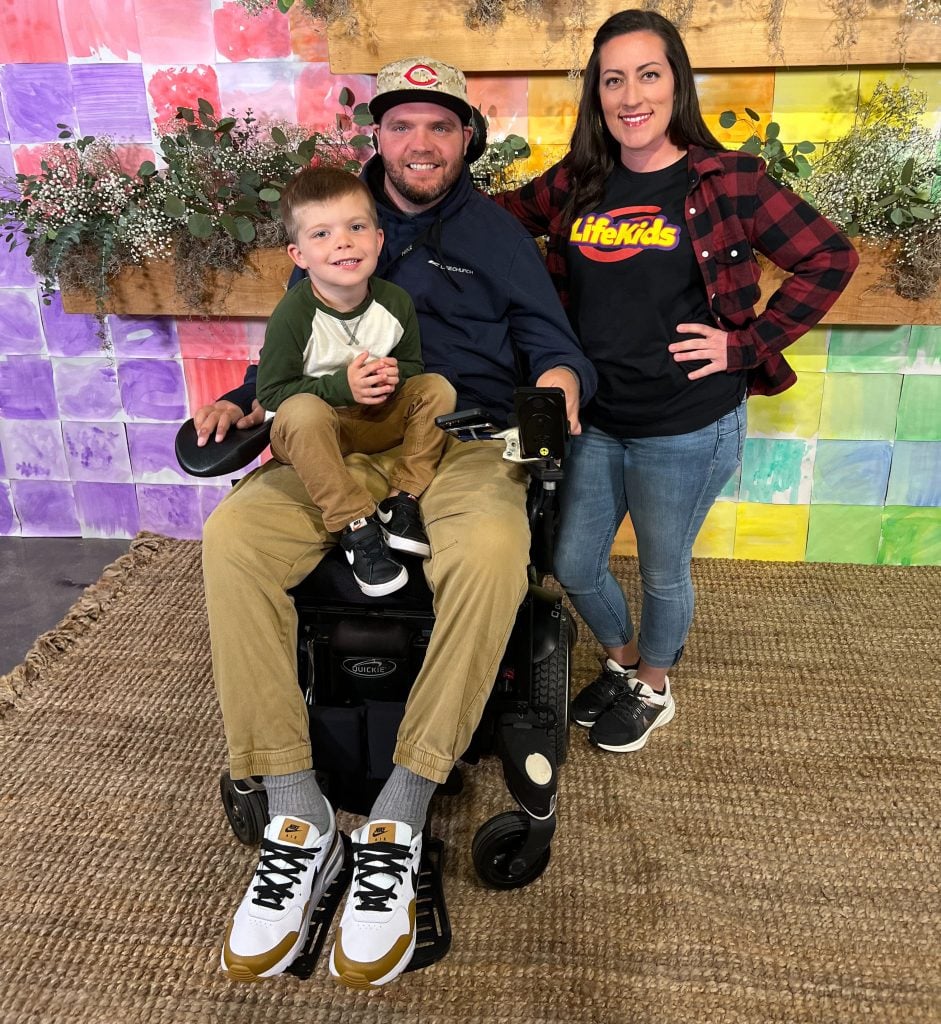
Their experiences with veterans’ infertility treatment taught them the importance of mutual support and finding alternative ways to connect as a couple amidst the challenges they faced.
“Obviously, I have [physical] limitations and can’t do a whole lot,” says Ted. “But there’s one thing I can do: I can be empathetic. I can be gracious.”
Ted explains that his physical limitations don’t prevent him from being an attentive, supportive partner. While there is no magic answer, Ted does his best to be there when Hope needs him.
“[I try] to help out where I can. I’ll order food when [Hope doesn’t] feel like cooking because she’s tired. I’ll do little things like that that have a big impact,” Ted says. “Trying to be diligent on planning. We like to do day dates. We don’t really do night dates — because we’re, like, geriatrics even though we’re 30.”
Teaching Understanding
Now, as Hudson becomes more conscious of the world – and people – around him, the Williams navigate explaining their unique family dynamics to a curious kid. They speak honestly about their differences and teach him to celebrate diversity .
“[Hudson] turns five in October, and he is starting to ask those challenging questions,” Ted explains. “You know, ‘Why are you in a wheelchair?’ And I could try speaking to him and telling him until he’s blue in the face, but he can’t understand.”
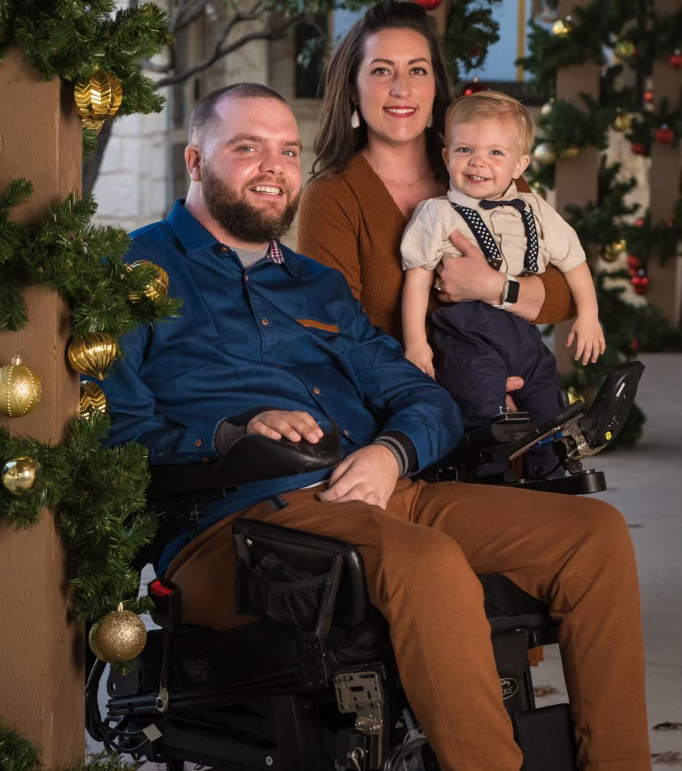
While Hudson may notice his father’s wheelchair and the limitations it presents, he loves his dad unconditionally. Hudson’s unaffected by societal expectations of fatherhood.
According to Ted, Hudson is beginning to understand that his parents can’t do certain activities with him, unlike other families. However, Ted emphasizes that this does not diminish Hudson’s love for him.
“From day one, I’ve been in a chair. My chair has never fazed Hudson,” Ted explains. “I’m like his personal jungle gym wherever we go, and it makes me happy.”
Though they understand the future has challenges, the couple remains committed to raising Hudson with love and understanding. They take each day as an opportunity to educate him about differences, instilling empathy and acceptance. Their journey reminds them that open communication can conquer obstacles and redefine being a family.

With generous support from EMD Serono, VIVA connects veterans experiencing infertility with the resources and financial support they need to start or expand their families.


